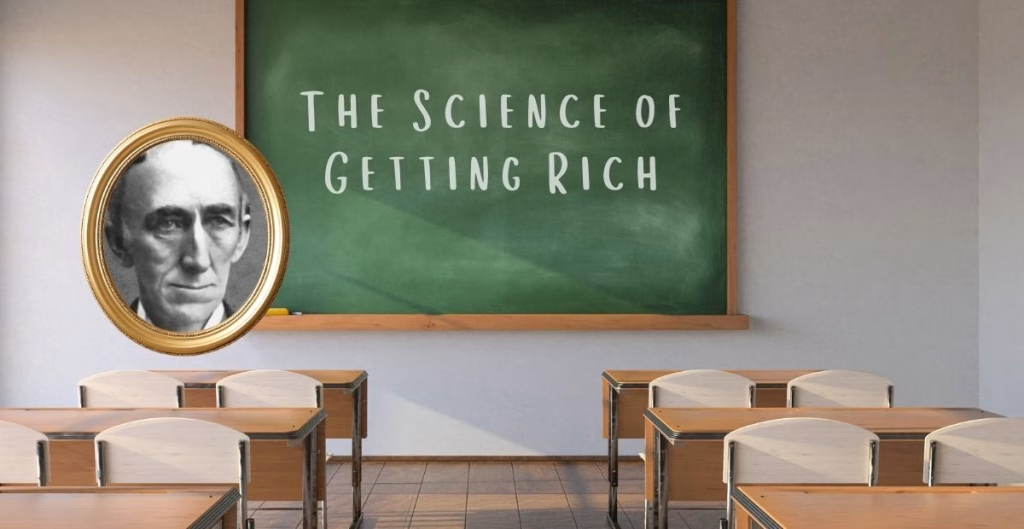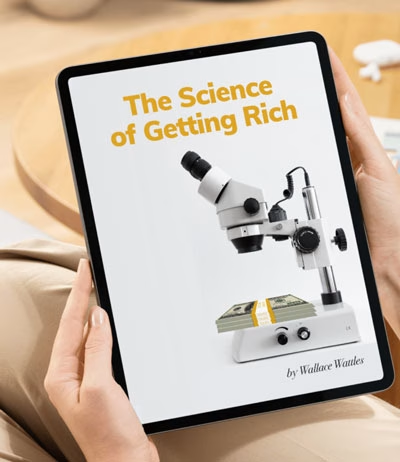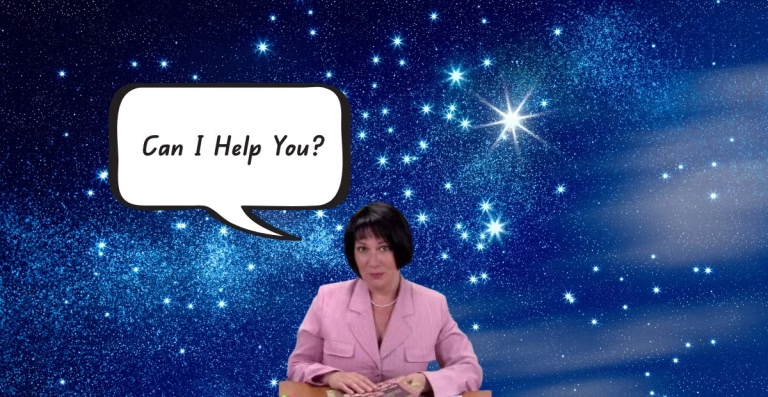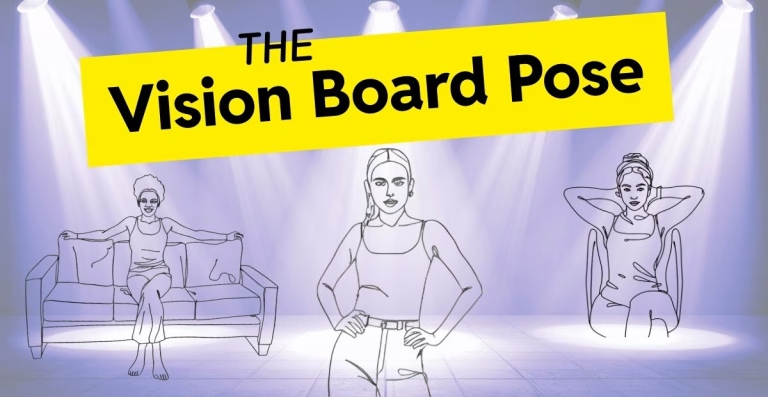The Science of Getting Rich: Manifesting School Basics

I’ve always thought of The Science of Getting Rich as the manifesting primer, which is why this fall the idea of going “Back to Manifesting School” felt so natural to me. September has that reset energy. The air shifts, the seasons turn, and something inside me wants to refocus, reorganize, and recommit to my goals. And what better way to start a new manifesting season than by revisiting Wallace D. Wattles’ timeless classic on prosperity and abundance?
Written in 1910, this little book has quietly shaped the entire personal development and abundance world. Everyone from Napoleon Hill to Rhonda Byrne (The Secret) has been influenced by Wattles’ work. And the best part? The book is now in the public domain and I replicated it so we could all have it.
I’ve gone through this book many times, and certain passages continue to stand out. They’re timeless truths about abundance, thought, gratitude, and purposeful action. Today, I want to share my favorite excerpts because they’ve helped me see money and manifestation differently, and I think they’ll help you too.

Download a copy of this classic book on manifesting: The Science of Getting Rich by Wallace Wattles
A Growth Mindset Includes the Right to Be Rich
I grew up with a complicated relationship with money. My parents taught me that being poor was somehow noble. Even when my mom earned money, she lived frugally, rarely spending on herself, though she was generous with gifts. That shaped me. Also my expectations of money were low since I wanted to be an artist. I was told I’d likely struggle financially, and I accepted that as part of my path.
So when Wattles came along with his unapologetic claim in The Science of Getting Rich, that we all have a right to be rich, it hit me harder than anything I had ever read from “money mindset” teachers. He doesn’t tiptoe around it. He says plainly:
“Whatever may be said in praise of poverty, the fact remains that it is not possible to live a really complete or successful life unless one is rich.”
Wattles isn’t glorifying greed. He’s pointing out that growth, creativity, and service require resources. The desire for more isn’t selfish. It’s life itself pushing forward through you.
“Every person naturally wants to become all that they are capable of becoming; this desire to realize innate possibilities is inherent in human nature.”
When I look at my vision board, I realize every single thing on it—travel, art supplies, books, experiences—requires some level of money. That doesn’t mean money is the only thing, but it’s the soil that helps the vision grow.
Formless Substance Is Like Divine Play-Doh
Wattles’ concept of the “Formless Substance” is one of my favorites. He describes a universal creative medium from which all things are made:
“Everything you see on earth is made from one original substance, out of which all things proceed.”
To me, this feels like divine Play-Doh. I imagine the universe handing us a big, infinite lump of divine clay that responds to thought. It makes manifestation less abstract. I’m not hoping for magic. I’m shaping substance from formless subtance.
“Thought is the only power which can produce tangible riches from the Formless Substance.”
This means our imagination and creative visualization is not just daydreaming—it’s the first stage of creation.
Mastering a World Beyond Appearances
Wattles admits the hardest work is thinking abundance when all we see around us looks like lack:
“To think according to appearance is easy; to think truth regardless of appearances is laborious, and requires the expenditure of more power than any other work man is called upon to perform.”
This was tough for me. I have compassion for people’s struggles. I can’t see suffering without it having an impact. How could I ignore appearances of lack when it causes suffering? But here’s what clicked. Appearances can be illusions. Economists have shown that the 1% manipulate wealth, sometimes intentionally creating scarcity so people keep grinding. Those in power occasionally destroy wealth so money becomes more valuable. But this is an illusion. In reality, money and resources are abundant but it is those in power who create the scarcity.
So now, instead of buying into the illusion, I choose to align with the truth. The universe is infinite. Galaxies, stars, possibilities are truly endless. Why would money and opportunity be any different?
The Hidden Technology of Gratitude
Wattles insists:
“You cannot exercise much power without gratitude; for it is gratitude that keeps you connected with Power.”
Gratitude is not just manners—it’s a spiritual technology. It tunes us into abundance like Wi-Fi. When we’re grateful, we’re connected. When we complain, the signal drops. Being thankful makes us feel provided for. Faith says, “If I’ve been provided for before, I can trust it will happen again.” It’s not blind optimism. It’s evidence-based trust.
Vision Boards for Vision and Mental Ownership
Wattles warns in The Science of Getting Rich:
“You must know what you want, and be definite. You can never get rich, or start the creative power into action, by sending out unformed longings and vague desires.”
This is why vision boards matter. They’re not decoration—they’re clarity tools. When you see the image every day, your brain (specifically your Reticular Activating System) starts noticing opportunities you’d otherwise miss. When I’ve been clear, my distractions fade. But when my board is fuzzy, I drift. Clarity isn’t controlling, it’s about focusing.
Today’s Action Is a Place of Power
Wattles motivates us:
“By thought, the thing you want is brought to you; by action you receive it.”
But he warns against frantic hustle. The key isn’t quantity of actions, but quality:
“Do, every day, ALL that can be done that day… It is really not the number of things you do, but the efficiency of each separate action that counts.”
This principle frees me. I don’t have to do everything today. I just have to do today’s part, and do it well.
Be the Person Who Gives Increase
One of Wattles’ most beautiful teachings is about being an “Advancing Person”:
“Increase is what all men and all women are seeking; it is the urge of the Formless Intelligence within them, seeking fuller expression.”
When people feel richer, more hopeful, and more alive after interacting with you, doors swing open. This isn’t a competition. It’s co-creation. I’ve noticed that when I bring a spirit of generosity (whether in money, encouragement, or ideas), opportunities come back multiplied. Wattles reminds us that abundance is contagious.
The Science of Getting Has a Manifesting Syllabus
For me, The Science of Getting Rich is not just a book about money, it’s really a guide to aligning with the creative force of the universe itself. Money is part of it, yes, but the deeper lesson is about learning how to think, act, and live in harmony with abundance. When I read Wattles’ words, I feel like I’m holding a curriculum for manifesting, a kind of freshman-year syllabus for creating the life you want.
These are the core principles, the “basics,” that set the foundation for everything else in manifesting. If you imagine going “Back to Manifesting School,” this is your very first class:
- Claim our right to abundance
- Shape formless substance with thought
- See beyond appearances
- Live in gratitude and faith
- Hold definite vision
- Act calmly and efficiently in the present
- Radiate increase to others
These principles are a curriculum worth returning to, especially at “Back to Manifesting School” time. If you haven’t yet read this powerful little book, I highly recommend it. CLICK HERE to download a free pdf of the book and explore the teachings in full.
Because here’s the truth: the desire you have for more is not selfish. It’s life itself calling you to grow, create, and shine. And you have every right to answer that call.







